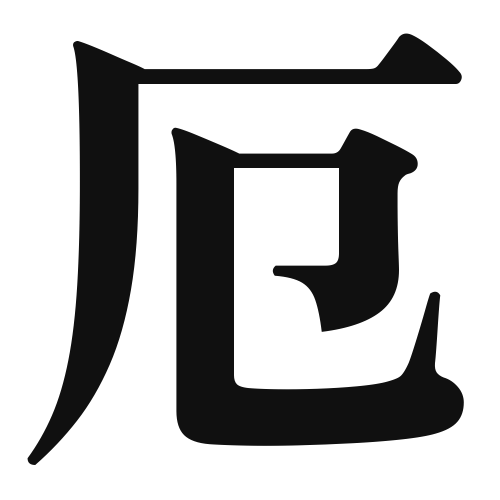1. Overview of Meaning
The kanji “厄” (yaku) generally means “misfortune” or “bad luck.” It represents negative events or experiences that can bring about hardship or trouble in one’s life.
2. Formation and Radical
Formation of the Kanji: The kanji “厄” is a phonetic-ideographic character (形声文字). It combines the radical for “house” (厳) with a phonetic component that suggests its pronunciation.
Radical: The radical for “厄” is “厄” itself, which is often associated with negative or ominous meanings.
3. Examples of Usage
Common Words and Phrases: Some frequently used words that include “厄” are “厄年” (yakudoshi – an unlucky year) and “厄払い” (yakubarai – a ritual to ward off misfortune).
Example Sentences in Daily Conversation:
- 今年は私の厄年です。 (This year is my unlucky year.)
- 厄払いをしてもらいました。 (I had a ritual to ward off misfortune.)
4. Synonyms and Antonyms
Similar Kanji: A similar kanji is “災” (zai), which means “disaster” or “calamity.” While both refer to negative events, “厄” is more about personal misfortune, whereas “災” often refers to larger-scale disasters.
Opposite Kanji: The opposite of “厄” could be “福” (fuku), which means “fortune” or “blessing.” This kanji represents positive outcomes and good luck.
5. Cultural and Historical Background
Relation to Japanese Culture: In Japanese culture, “厄” is often associated with traditional beliefs about luck and misfortune. Many people participate in rituals to ward off “厄” during their unlucky years.
Proverbs and Idioms: One common saying is “厄を避ける” (yaku o sakeru), which means “to avoid misfortune.” This reflects the cultural emphasis on seeking good fortune and avoiding bad luck.
